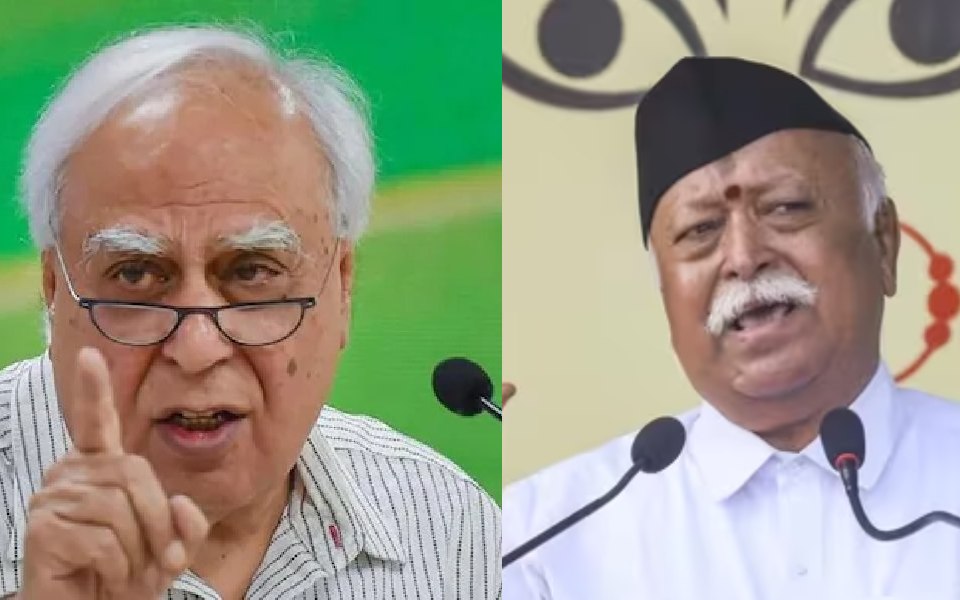In recent political discourse, Kapil Sibal, a prominent Indian politician and lawyer, has highlighted a perceived disconnect between the statements of RSS Chief Mohan Bhagwat and the actions of the Indian government.
This observation brings into focus the intricate dynamics between ideological organizations and state policies in India.
Mohan Bhagwat, as the head of the Rashtriya Swayamsevak Sangh (RSS), has been known for advocating a vision of India rooted in Hindu nationalism.
His speeches often emphasize cultural unity and the protection of Hindu values.
On the other hand, the Indian government, led by the Bharatiya Janata Party (BJP), while sharing some ideological similarities with the RSS, operates within the constitutional framework of a secular democracy.
This necessitates a balance between various religious and cultural interests.
Sibal’s critique suggests that there is a divergence between Bhagwat’s rhetoric and the government’s actions.
For instance, Bhagwat may advocate for policies that prioritize Hindu cultural values, while the government must consider the diverse fabric of Indian society, ensuring that policies are inclusive and equitable for all citizens, regardless of their religious affiliation.
This tension is not uncommon in democratic societies, where ideological groups may influence public discourse, but the government remains bound by constitutional principles and the imperative to maintain social harmony.
The challenge lies in reconciling ideological perspectives with the practicalities of governance in a diverse nation like India.
In conclusion, the perceived disconnect between Mohan Bhagwat’s remarks and the government’s actions, as pointed out by Kapil Sibal, underscores the complexities inherent in aligning ideological beliefs with state policies in a pluralistic democracy.
It serves as a reminder of the delicate balance that must be maintained to uphold both cultural values and constitutional mandates.

